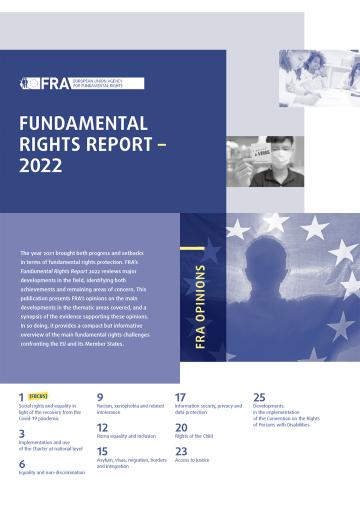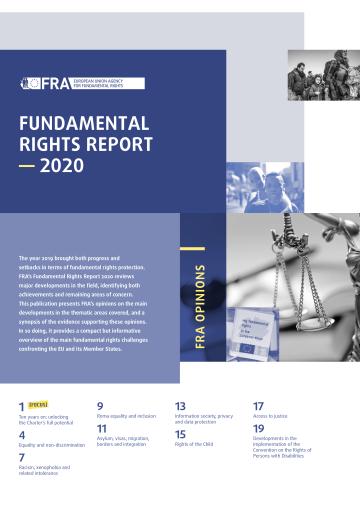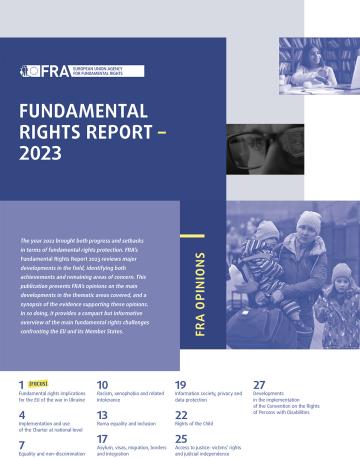Preamble
(3) The third paragraph of Article 47 of the Charter of Fundamental Rights of the European Union (the Charter), Article 6(3)(c) of the European Convention for the Protection of Human Rights and Fundamental Freedoms (ECHR) and Article 14(3)(d) of the International Covenant on Civil and Political Rights (ICCPR) enshrine the right to legal aid in criminal proceedings in accordance with the conditions laid down in those provisions. The Charter has the same legal value as the Treaties, and the Member States are parties to the ECHR and the ICCPR. However, experience has shown that this in itself does not always provide a sufficient degree of trust in the criminal justice systems of other Member States.
(17) In accordance with Article 6(3)(c) ECHR, suspects and accused persons who lack sufficient resources to pay for the assistance of a lawyer are to have the right to legal aid when the interests of justice so require. This minimum rule allows Member States to apply a means test, a merits test, or both. The application of those tests should not limit or derogate from the rights and procedural safeguards that are ensured under the Charter and the ECHR, as interpreted by the Court of Justice and by the ECtHR.
(21) Requested persons should have the right to legal aid in the executing Member State. In addition, requested persons who are the subject of European arrest warrant proceedings for the purpose of conducting a criminal prosecution and who exercise their right to appoint a lawyer in the issuing Member State in accordance with Directive 2013/48/EU should have the right to legal aid in that Member State for the purpose of such proceedings in the executing Member State, in so far as legal aid is necessary to ensure effective access to justice, as laid down in Article 47 of the Charter. This would be the case where the lawyer in the executing Member State cannot fulfil his or her tasks as regards the execution of a European arrest warrant effectively and efficiently without the assistance of a lawyer in the issuing Member State. Any decision regarding the granting of legal aid in the issuing Member State should be taken by an authority that is competent for taking such decisions in that Member State, on the basis of criteria that are established by that Member State when implementing this Directive.
(22) To ensure effective access to a lawyer by requested persons, Member States should ensure that requested persons have a right to legal aid until they are surrendered, or until the decision not to surrender them becomes final.
(23) When implementing this Directive, Member States should ensure respect for the fundamental right to legal aid as provided for by the Charter and by the ECHR. In doing so, they should respect the United Nations Principles and Guidelines on Access to Legal Aid in Criminal Justice Systems.
(29) This Directive should apply to suspects, accused persons and requested persons regardless of their legal status, citizenship or nationality. Member States should respect and guarantee the rights set out in this Directive, without any discrimination based on any ground such as race, colour, sex, sexual orientation, language, religion, political or other opinion, nationality, ethnic or social origin, property, disability or birth. This Directive upholds the fundamental rights and principles recognised by the Charter and by the ECHR, including the prohibition of torture and inhuman or degrading treatment, the right to liberty and security, respect for private and family life, the right to the integrity of the person, the rights of the child, the integration of persons with disabilities, the right to an effective remedy and the right to a fair trial, the presumption of innocence, and the rights of the defence. This Directive should be implemented in accordance with those rights and principles.
(30) This Directive lays down minimum rules. Member States should be able to extend the rights laid down in this Directive in order to provide a higher level of protection. Such higher level of protection should not constitute an obstacle to the mutual recognition of judicial decisions that those minimum rules are designed to facilitate. The level of protection provided for by Member States should never fall below the standards provided by the Charter or by the ECHR, as interpreted by the Court of Justice and by the ECtHR.
Article 3: Definition
For the purposes of this Directive, ‘legal aid’ means funding by a Member State of the assistance of a lawyer, enabling the exercise of the right of access to a lawyer.
Article 4: Legal aid in criminal proceedings
1. Member States shall ensure that suspects and accused persons who lack sufficient resources to pay for the assistance of a lawyer have the right to legal aid when the interests of justice so require.
2. Member States may apply a means test, a merits test, or both to determine whether legal aid is to be granted in accordance with paragraph 1.
3. Where a Member State applies a means test, it shall take into account all relevant and objective factors, such as the income, capital and family situation of the person concerned, as well as the costs of the assistance of a lawyer and the standard of living in that Member State, in order to determine whether, in accordance with the applicable criteria in that Member State, a suspect or an accused person lacks sufficient resources to pay for the assistance of a lawyer.
4. Where a Member State applies a merits test, it shall take into account the seriousness of the criminal offence, the complexity of the case and the severity of the sanction at stake, in order to determine whether the interests of justice require legal aid to be granted. In any event, the merits test shall be deemed to have been met in the following situations:
(a) where a suspect or an accused person is brought before a competent court or judge in order to decide on detention at any stage of the proceedings within the scope of this Directive; and
(b) during detention.
5. Member States shall ensure that legal aid is granted without undue delay, and at the latest before questioning by the police, by another law enforcement authority or by a judicial authority, or before the investigative or evidence-gathering acts referred to in point (c) of Article 2(1) are carried out.
6. Legal aid shall be granted only for the purposes of the criminal proceedings in which the person concerned is suspected or accused of having committed a criminal offence.
Article 5: Legal aid in European arrest warrant proceedings
1. The executing Member State shall ensure that requested persons have a right to legal aid upon arrest pursuant to a European arrest warrant until they are surrendered, or until the decision not to surrender them becomes final.
2. The issuing Member State shall ensure that requested persons who are the subject of European arrest warrant proceedings for the purpose of conducting a criminal prosecution and who exercise their right to appoint a lawyer in the issuing Member State to assist the lawyer in the executing Member State in accordance with Article 10(4) and (5) of Directive 2013/48/EU have the right to legal aid in the issuing Member State for the purpose of such proceedings in the executing Member State, in so far as legal aid is necessary to ensure effective access to justice.
3. The right to legal aid referred to in paragraphs 1 and 2 may be subject to a means test in accordance with Article 4(3), which shall apply mutatis mutandis.
Article 6: Decisions regarding the granting of legal aid
1. Decisions on whether or not to grant legal aid and on the assignment of lawyers shall be made, without undue delay, by a competent authority. Member States shall take appropriate measures to ensure that the competent authority takes its decisions diligently, respecting the rights of the defence.
2. Member States shall take necessary measures to ensure that suspects, accused persons and requested persons are informed in writing if their request for legal aid is refused in full or in part.
Article 7: Quality of legal aid services and training
1. Member States shall take necessary measures, including with regard to funding, to ensure that:
(a) there is an effective legal aid system that is of an adequate quality; and
(b) legal aid services are of a quality adequate to safeguard the fairness of the proceedings, with due respect for the independence of the legal profession.
2. Member States shall ensure that adequate training is provided to staff involved in the decision-making on legal aid in criminal proceedings and in European arrest warrant proceedings.
3. With due respect for the independence of the legal profession and for the role of those responsible for the training of lawyers, Member States shall take appropriate measures to promote the provision of adequate training to lawyers providing legal aid services.
4. Member States shall take the necessary measures to ensure that suspects, accused persons and requested persons have the right, upon their request, to have the lawyer providing legal aid services assigned to them replaced, where the specific circumstances so










